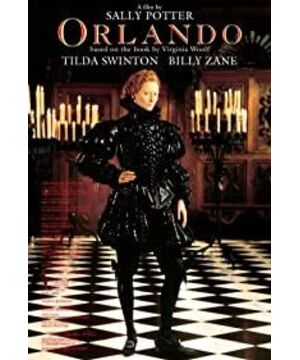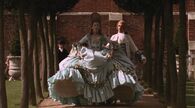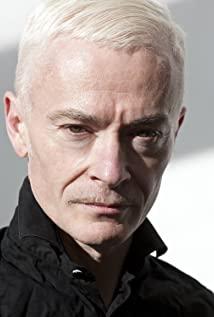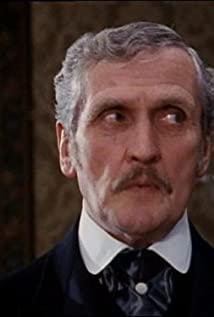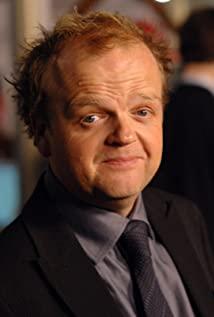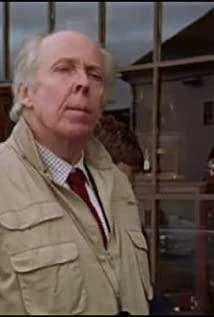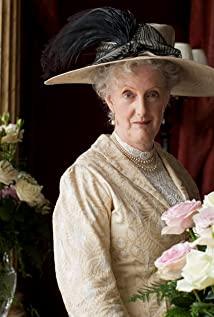(Traditional Chinese characters are used for the homework of the film and television and gender courses when the film was exchanged in Taipei)
Beauty Orlando: Gender Beyond Gender
——Discussing Orlando's Gender Issues from the Perspective of Multiple Genders
We often talk about gender, gender, and sexuality. The underlying logic is to show that there is a distinction between sexual orientations (Sex), or areas of masculine and feminine existence. And in our usual stereotype there is no gender other than male and female. It is also said that gender refers to the conflict between male and female, commonly known as binary gender. There is always a lot of confusion about Orlando under the lens of Sally Potter, such as the mystery of its longevity, the mystery of its metaphor, and even the way of expression in the film full of stream of consciousness, but in this article we focus on thinking The discussion is about gender in Orlando.
1. Doubts about androgyny
Gender yin and yang, there are always exceptions in the world. From the origins of myths there are always ideas left in people's subconscious. In Greek mythology, there is a god named Hermaphrodite, the child of Aphrodite, the god of beauty, and Hermes, the god of messengers. He/she is the yin and yang god in ancient Greek mythology, that is to say, the god who combines masculine and feminine characteristics. There is a word in English: Hermaphroditism, which refers specifically to androgyny. As in Hijra in India, it is often referred to as a "third gender" in addition to the binary gender. But will Orlando be a third gender? A narration in the movie is to the effect: no one doubts his beauty, just as no one doubts his gender is male.
In the movie, Orlando is like Wilde's Dorian Gray, who sold his soul to the devil to gain immortality and youth. We have no way of knowing why Orlando was immortalized in the movie. But with more than 400 years of immortality, Orlando is beyond human beings. Rather than referring to him/her, he is a better choice. In the first half of the film, he claimed to be a male, but his demeanor and face were biased towards females. We can read him in terms of Jung's theory of the Persona and the Anima and Animus, the subconscious level of reverse gender images. In the male period, Orlando hid an Armani. At that time, he fell in love with the daughter of the Russian ambassador at first sight. The image of the perfect woman in his heart was projected on the ambassador's daughter. Orlando even gave up everything for her to run away. And when he became her, Anamas was first a noble man, then an adventurer from America. The nobility is a projection symbol of Orlando's need for property status. If she marries a noble, she can keep the property. It is worth noting that the period at this time was the Rococo period, and the salon culture was prevalent. At that time, women seemed to be allowed to participate in the salon, but they could only decorate the objects of men. As Orlando's maid said, salons are too dangerous for a lady like Orlando. The Duke who proposed to marry was like a cage of secular society, and Orlando tried to discipline herself into an established woman. So she resisted and refused. The adventurer in the New World she rescued later is her portrait of "freedom". The former is a passive proposal, the latter is actively rescued. The presence of its female consciousness is particularly important.
But such hermaphroditism only seems to prove that Orlando is an extreme representation of Jung's theory, and it is more of a hermaphrodite at the spiritual level. We still can't come up with a ready definition of its gender.
The transition across gender
If Orlando cannot be defined as hermaphrodite, then we can perhaps focus on its transformation of "gender spanning". Orlando transitions from a male to a female in the film. Compared with the coexistence of feminine and masculine in Helphrodite in Greek mythology, it is more like Caeneus who changed from female to male after being raped by Neptune Poseidon. There are two elements here, one is the behavior of transformation, and the other is the external force of transformation.
First the act of transformation itself. In the transgender community (Transgender) there is a proper word called "passing". Originally used in racism to describe whether people of color have entered the mainstream normative order of white ethnic groups. When in the gender system, it becomes a transgender group that describes itself as having completed the "crossover" behavior. For example, whether an mtf (male transfer female) completes the passing from a biological male to a biological female today. A very common sentence is "Do you passing today?" When the transition is completed, is the mtf a transgender person, or has become a woman? If they freely identify with the former, they will enter the narrative system of transgender people, more about physical politics, while the latter is the expression of women’s space, ontology, consciousness and rights, which has become identity politics ( Identity Political). A very controversial point is that Germaine Greer, a representative of the second wave of feminism, believes that transgender women are not women. This is also the view of some women who believe that their living space has been compressed by men (including transgender women). When we enter the movie, it is easy to find the different states of Olando as a male and a female. Males can actively stare at dance parties, and even flirt and elope. It is self-evident that there is a huge space for activities. When females are in the salon, they can only be used as a moving decoration in the salon, passively watched, and occasionally seen by the salon. Men's "female speech" or their past gender is offensive. It is not difficult to imagine that there will be a certain amount of space in the movie to show Orlando traveling through the maze and the fog, and time cannot give him the answer. . .
Of course, one thing that makes Orlando different from transgender is "active". Transgender people often go through gender reassignment surgery or self-identify as transgender. But Orlando was transformed into a woman after witnessing the evils of war and politics slumber for seven days, just as poor Cairnius was raped and transformed from a woman into a man. What they have in common is that the transformation has external forces, and the external forces are all patriarchal. Not to mention rape in the latter, war and politics in the former have been recognized as a product of the patriarchal system from ancient times to the present. The protagonist of Predestination also changed from female to male. Or maybe one of the reasons Woolf wrote Orlando was to rebel against the established patriarchy, in a way.
When we discuss Orlando's gender, there seems to be a myth that he is male or female, and neither male nor female. This myth persists throughout the film. We go to the movies with myths, and Orlando also takes this identity to travel through time and space to witness himself. And such gender identities can really be defined?
3. Beyond gender
There is always a word in the contemporary queer movement called "Proud". What are you proud of? Be proud of who you are. In the movie, it is very interesting about Orlando's attitude towards himself. In traditional Hollywood movies or comedy movies, once the plot of gender conversion is involved, the emotions shown by the protagonist must be exaggerated and confused. But Orlando didn't have any surprise or panic about her gender transition. It seemed that this established fact itself was like this, as normal as breathing, eating, and drinking. Is Orlando proud of her ambiguous gender identity? His attitude has gone beyond the scope of "pride" itself and has become the norm. Orlando believes that he is himself, and he never treats himself as male or female, or any gender given by society. When we look at Orlando at the moment, we also unconsciously try to define an accurate definition and confirm the same voice to several noble adults in the scene of the salon in the movie. What is Orlando not? What would that be?
We bring a diversity of perspectives into our analysis of gender issues. Such diverse perspectives are no longer just talking about gender issues. Respect differences and see differences. The same is true when we see what Orlando symbolizes. This visual image brings us to think outside the mainstream narrative. Such thinking is not the only one under the patriarchy, where the difference is seen. That's why the film is considered a feminist masterpiece.
What Orlando transcends is not only the normative paradigm under gender, but also other thinking under the single authority of patriarchy. This is why it is said that this is a "gender" other than gender, and Orlando is just Orlando. In the beginning, he swayed his youth under the tree, chanting that the time will be late, and finally she took her child here to look at the future and her own end. As the angel at the end of the movie sings: I'm coming. Here I am. Neither a women, nor a man, we are joined, we are one. Maybe this is the life of Orlando, completely lifetime.
View more about Orlando reviews


